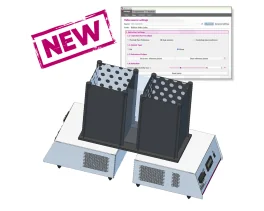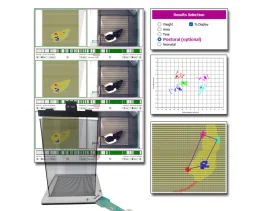Authors
T. Scheikl, B. Pignolet, C. Dalard, S. Desbois, D. Raison et al.
Lab
INSERM, U1043, Toulouse, France.
Journal
The Journal of Immunology
Abstract
An increasing number of neurologic diseases is associated with autoimmunity. The immune effectors contributing to the pathogenesis of such diseases are often unclear. To explore whether self-reactive CD8 T cells could attack CNS neurons in vivo, we generated a mouse model in which the influenza virus hemagglutinin (HA) is expressed specifically in CNS neurons. Transfer of cytotoxic anti-HA CD8 T cells induced an acute but reversible encephalomyelitis in HA-expressing recipient mice. Unexpectedly, diabetes insipidus developed in surviving animals. This robust phenotype was associated with preferential accumulation of cytotoxic CD8 T cells in the hypothalamus, upregulation of MHC class I molecules, and destruction of vasopressin-expressing neurons. IFN-_ production by the pathogenic CD8 T cells was necessary for MHC class I upregulation by hypothalamic neurons and their destruction. This novel mouse model, in combination with related human data, supports the concept that autoreactive CD8 T cells can trigger central diabetes insipidus.
BIOSEB Instruments Used
Aron Test or Four Plates Test (LE830),Rotarod (BX-ROD)
Source :

 Douleur - Allodynie/Hyperalgésie Thermique
Douleur - Allodynie/Hyperalgésie Thermique Douleur - Spontanée - Déficit de Posture
Douleur - Spontanée - Déficit de Posture Douleur - Allodynie/Hyperalgésie Mécanique
Douleur - Allodynie/Hyperalgésie Mécanique Apprentissage/Mémoire - Attention - Addiction
Apprentissage/Mémoire - Attention - Addiction Physiologie & Recherche Respiratoire
Physiologie & Recherche Respiratoire




































 Douleur
Douleur Système Nerveux Central (SNC)
Système Nerveux Central (SNC)  Neurodégénérescence
Neurodégénérescence Système sensoriel
Système sensoriel Système moteur
Système moteur Troubles de l'humeur
Troubles de l'humeur Autres pathologies
Autres pathologies Système musculaire
Système musculaire Articulations
Articulations Métabolisme
Métabolisme Thématiques transversales
Thématiques transversales Congrès & Meetings
Congrès & Meetings 